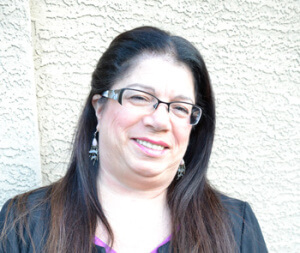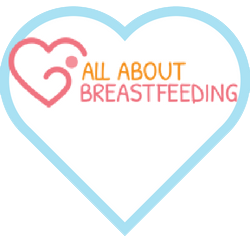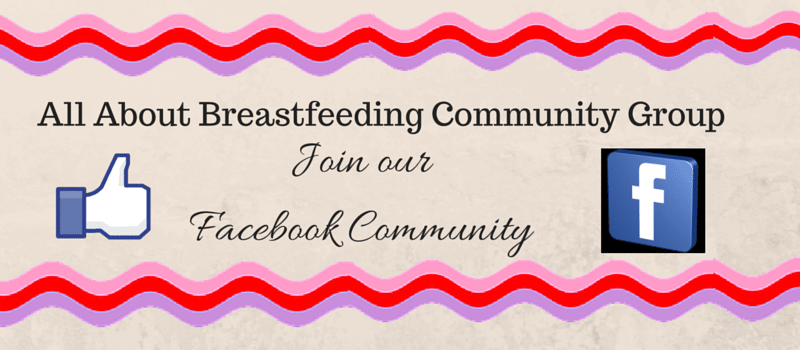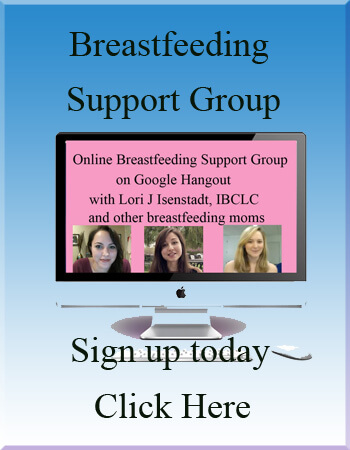Why did I become an IBCLC?
I have to honestly say that I did not start out wanting to become an IBCLC. It is one of those things that I really did just fall into. After the birth of my first baby, I was not thrilled at how I was treated prenatally or during the birth. So, I purposefully set out to make things better for myself for my next pregnancy. I became a certified childbirth educator and learned so much for myself and began teaching others what I had learned. Along the way, I realized I wanted to help other woman, not just educating them about their pregnancy, but also saw such a need to help them during their labor. There was a void in the continuous care they needed. I recognized this and decided to become a birth doula. I began going to births and WOW! This was one of the most amazing times of my life. I had 3 children by this time, became a birth junkie. I started my own business and called it Pregnancy Connections. I taught childbirth classes and attended births as a doula. I soon began having bigger dreams as I fantasized about becoming a midwife.
When I moved from New York to Arizona, I intended on pursuing midwifery. This was a field that I dreamt about for many years, however, could not pursue it full force while my kids were younger. While I could not go to midwifery school, I spent money on books and joined together with a small group of moms who also were bitten by the birth junkie bug. We met on a regular basis and taught each other. We invited midwives to come and teach us. They were great times and while I did not continue on a become a midwife, I cherish those times spent with my BFFs.
By the time I moved from New York to Arizona the kids were older, more self sufficient, everyone was sleeping through the night and could make meals themselves, do their own laundry, be responsible for doing their own school work and could be left home for quite a few hours by themselves. This was my criteria for being able to move forward with midwifery.
In NY, I had a nice business teaching childbirth classes and taking on private doula clients. When I moved to Arizona, I did my best to find a midwifery apprenticeship but just was not successful. While waiting for the perfect opportunity to come knocking on my door, I decided to teach childbirth classes at local hospitals and it is here that I met my first IBCLC! Bonnie Jones was a nurse and an IBCLC. She was part of the education department and yet she was not teaching most of the classes, just the breastfeeding ones. I remained curious about what it is she actually did because I know she worked full time for the hospital. I was new and didn’t want to ask. Until one day, my curiosity got the best of me and I did ask. She told me she was on Staff as the IBCLC. I remember saying: as what? She told me what the lettesr stood for and I had never heard of this before.
Not really thinking, I asked Bonnie – So,, what is it that you do all day? You work a 40 our week right? I soon looked back on that day and I am clearly Embarrassed to say that I asked her this and I can only imagine how insulting it seemed to her, but she never said anything.
In my defense this was in 1998. I had never met an IBCLC in NY and I was quite active in the childbirth community. Here in Arizona, I learned that there was not even an IBCLC working in every hospital, and when there was, there certainly was not enough coverage so the field was still in its infancy as far as I was concerned.
I guess I didn’t insult her or piss her off nearly as much as I thought I might have, as one day after asking her more questions, she invited me to come watch her work one day. I turned her down several times before on day saying.. okay. My interested in piqued. Sooo
I accepted her invitation to come watch her work one day. Shadowing Bonnie:
I drove 45 minutes in traffic to get to the hospital that she worked at. I was introduced to her supervisor and welcome to the unit by several other nurses. It is a wonder that Bonnie did not kick me to the street that day. I have a weird and quirky sense of humor and sometimes find it hard holding back when something makes me laugh. Bonnie was quite a few years older than me, and very, very straight laced.
When she said that she was going to introduce me to the nurse who supervised the nursery and told me her name, I was like.. really? you got to be kidding! Cynthia Topliss. I said Topliss as in Topliss. And Bonnie said quite firmly and with a tad bit of disapproval about my reaction. Topliss. T O P L I S S. I said oh.. okay, well I can’ wait to meet her. I mean come on. For those who are judging me right now.. Ya gotta admit… Last name Topliss .. on a maternity Unit. that is just as bad as a male OB in the town that I grew up in… Gregory Seamen. Yes, spelled S E A M AN, but an OB/GYN with the last name Seaman. I told you things strike me as funny.
After some introductions, I went from room to room to room with her. I watched her interact with each mom, dad, baby, family members. I have to say it was far from what I expected. But then again, I HAD come into this with a preconceived notion of what her job would look like. Just meeting moms, saying hi to their baby and giving them a nice touch on the shoulder telling them they were doing a good job and their baby was latched on nicely. I expected her to give some review info of what they had learned in class and then move on to the next mom.
What I thought and what I experienced were 2 totally different animals.
The first thing that left an impression on me was how much formula there was in each room. I knew mom received formula in the hospital. In the hospital classes free bags were given out. It was just that seeing it in the rooms had a greater impact on me. There were 6 packs that had been given to the moms, plus if they were about to be discharged, they had these bags that were given by the formula companies sitting with all the other stuff they were bringing home. These bags were filled with more free formula, coupons for formula, booklets that talked about breastfeeding being the best, but if it didn’t work out or you didn’t make enough, then this formula is just like mothers milk. There were other kinds of freebies like ice packs and measuring tape, all with the formula companies logo on them, more coupons for formula.
The second thing I noticed is the lack of babies. Where were all the babies? Well some were in the moms rooms, all bundled up with hats and several layers of blankets and in the crib all by themselves. Other babies were in the nursery. You see, we came in at about 7:30 am and lots of babies were being cared for in the nursery so parents could sleep. While they were cared for in the nursery, it was not unusual for them to have had a bottle or two and come back with pacifiers in their mouths and bottles of formula in their crib drawers. Yes, these babies were well stocked.
And yes, there were some babies with there mommies, thank goodness. Many of the moms seemed to lack the knowledge and the confidence in their ability to breastfeed or that they even had milk. Some of the info they had was from family members who told them they had no milk yet and had to give formula until their milk came in, others had squeezed their breasts and when they could not see any milk coming out their nipples, they assumed they did not have milk.
Other moms had a few breastfeedings so far and their nipples were hurting or they were saying they did not think there babies were getting enough because they wanted to just keep eating and eating. Other babies had slept so much that the staff said X amount of hours had passed by and their baby needed to eat, so they gave them formula.
Out of the first 4 moms we saw, and I will never forget this, Bonnie was able to work with 1 mom/baby pair. The mom was ready and the baby was hungry. Each of the others there was another story and the afternoon and several moms later, the reasons continued: just had been fed,= by Dad or nursery because mom had c/sec, just had a bottle because baby was still hungry after breastfeeding, baby still in nursery, parents asked us to come back because they had visitors.
Sure we did get to work with a few moms and this made me feel really good as I watched Bonnie help, educate and advocate for each mom. The other thing that left an impression on me was that, Bonnie was kept busy just from the 4 or 5 moms she actually got to help with breastfeeding. If all the other moms who needed help, I doubt she would have been able to offer them each the same individual and dedicated attention she gave to each mother she did have the pleasure of helping with breastfeeding. Very quickly, I realized that I loved watching Bonnie work with the moms and the dads. She had a quiet and gentle presence. She had this incredible knack for making them feel good, for boosting their confidence, for helping them open up to her and ask questions. Bonnie focused on the mom and yet recognized the importance of including Dad in on all of this. After all, she would say: I don’t go home with you.
I thought: what a quandry. Circumstances did not allow for her to help all the moms, but if they did, time would not have allowed her anyway!
There was the time spent with each mom and then there was the need to chart on each mom and add these papers to each patients charts, communicate with her nurse if needed. This took a lot of time. I had no idea!
I was frustrated by what I saw. But intrigued to say yes to coming back another day when Bonnie invited me. The second day, I was not so distracted with all the unknowns of the unit, the staff, the charting etc. and I just concentrated on what Bonnie was doing. I was able to see her in action and see the difference she could make. Take a teary eyed mom and a worried day and turn the whole situation around.
End of second day: Bonnie complimented me on some of the verbal interactions I had with the moms. Bonnie tells me she had just taken training to become an IBCLC teacher and would I want to become an IBCLC? Aaaaahhhh,,, no wonder she kept encouraging me to come in and watch her. She later told me that she had her eye out on me as a potential student. She could tell that I had good communication skills, was a good listener, could be empathetic when needed, knew how to talk to the pp mother and was use to teaching classes and relating to parents. I already had a good skill set in areas that she felt were difficult to teach. The clinical skills that I needed, she felt confident she could teach and I could learn. She was roping me in. At first, I turned her down flat.
Went home thought about it and said No again.
Then I thought some more, enough to find out exactly what was going to be required of me. First thing I did was to take a good look at what I was in for as far as time and financial commitment. What course work and clinical was expected of me.
Based on the fact that I was not an RN, had no formal way to account for all the hours I had taught breastfeeding classes over the last 10 years, no way of measuring all my hours spent, I had nothing to show for it so I was beginning at the beginning.
I was looking at the 2 year plan which would cover clinical/hands on help and all the educational requirements, plus several thousands of dollars spent. I paid my teacher, their were books and classes and exam fees and liability insurance.The biggest thing that stood out to me was: If I moved forward with this, I would not be able to pursue midwifery, at least for the next few years.
After nights of tossing and turning , My lovely husband helped me make the final decision.
He asked me 2 questions:
Is this something you could see yourself doing for many years? Answer Yes.
Is midwifery something you could see yourself doing for many years? Answer Yes
Well, at first blush you might say: A lotta help that was.
He asked me other questions:
How likely is it that you are going to find a midwifery apprenticeship in the next year? Highly unlikely
If you started tomorrow, how many years would it take you from beginning to end? 4 years
How likely do you think this opportunity to be a student of lactation will come around again? Highly unlikely.
If you start tomorrow, how many years would it take you from beginning to end? 2 years
The ANSWER became more clear. I might not find a midwifery apprenticeship for a while and it will take me 4 years after that to complete.
I did have a once in a lifetime ( as far as I was concerned) opportunity to train with an experienced IBCLC, for 2 years
I contemplated some more:
Someone had to pay for all this, so I would have to keep teaching. I would spend days on the maternity unit and 2 nights a week teach childbirth and breastfeeding classes, and of course, study in between,, in my FREE/Spare time.
So we worked out a payment arrangement, I purchased liability insurance, filled out all the paperwork, signed my letter of intent of all the requirements I had to accomplish and as I wrote out the plan, I could see, that for me this was going to be several thousands of dollars and a 2 year plan, before I was to complete the pre-req and all required experiences before I was eligible to take the exam. This was a big committment. Up to this time, I had devoted 6 months to becoming a childbirth educator, about the same to become a doula, but now, I was on the 2 year plan.
I chose the IBCLC and rarely have I looked back. I was fortunate enough to have about 10 doula clients over the next 2 years and working in the hospital that had a large midwifery practice whose moms birthed in the hospital, I got to see quite a few more births AND was able to be in Recovery room for many, many moms for that first latch., so I was able to get my birthing fix paid attention to.
There were definitely enough times of frustration at the system and definitely many times we spent banging our heads against the wall.
And yet, whenever we worked with a mom and baby and were able to help them with beginning breastfeeding, answer all their questions and be a valued person in their life who helped them get off to a great breastfeed start, well this always made up for the hard parts of the job.
At first, I sat on my hands, so to speak and just watched, listened and learned from Bonnie. Gradually, I was able to take on more and more responsibility. It took about 4 months or so and perhaps 300 mothers, until I was working directly with moms and always with Bonnie in the room overseeing things. It was a gradual move until I could be on my own with a mom, with Bonnie not needing to be in the room, but definitely on the floor within shouting distance. As I became better and more confident in my skills, I did more and more on my own.
I had to work with all kinds of breastfeeding challenges – premie babies, moms with c/sections, moms with flat nipples, inverted nipples, medical conditions that made it difficult for them to breastfeeding – lupus and MS and breast challenges such as implants and biopsies and abscesses, babies who were born premature or with cleft lip and/or palate, special needs babies, breathing issues, adoptive moms, surrogate moms.
When time came for me to fulfill requirements such as working with older babies and toddlers in an outpatient setting, Bonnie and I started a breastfeeding mothers group in the 2 hospitals we were affiliated with. In this group, I was able to work directly with moms who older babies who had other issues ( thrush, oversupply, vasospasm, nursing strike, low milk supply, refusing bottles, reverse cycling) A big shout out to any of those moms in the first few groups we started as your babies are now in High School and some might even be in their first year of college. This is insane as I even say it out loud!
Bonnie and I worked together so I could have as many varied experiences as I possibly could in that 2 year period. Her sister was an IBCLC in a local WIC office so I spent days observing her sister at work. I spent quite a bit of time in pediatric offices and some OB and midwives offices observing how they communicated with the breastfeeding mother. Preparing her for the newborn and breastfeeding and helping her troubleshoot problems she had once her baby was born. I even spent some time in a large breastfeeding clinic, observing other IBCLCs in other settings doing their job.
During this time, i worked with moms who had hearing impairments, physical disabilities, major health issues. adoptive moms, young mothers who were living in impossible home situations… all who were determined to breastfeed their babies. I am incredibly grateful for the many families I worked with and learned from. Having these varied experiences is largely responsible for the IBCLC I am today.
Our goal was for me to have a wide range of experiences helping moms and babies in all sorts of situations, by the time it came to take the exam. I put in at least 2000 clinical hours and saw over a thousand moms by the time I took the exam in July of 2001. It takes 3 months to find out if you passed the exam. I continued teaching classes at the hospital and was absolutely ecstatic at an opportunity that came my way. I was interviewed for a very prestigous position at BESTFed, a breastfeeding store that sold pumps and pillows and nursing bras and baby carriers. They also employed IBCLCs who saw moms on an individual basis in private consults. This was the only store of its kind in all of Phoenix and some very experienced IBCLCs working there. After a nerve wracking interview, I was offered the position and you bet your sweet bippy I said Yes, yes, and yes. There were limitation in what I could do, at least until I had confirmation that I passed the exam. Do you have any idea how long those 3 months of waiting were? In October of 2001, I became a fully fledged certified IBCLC and could begin breathing easier.
So, there you have it. My – Why I became an IBCLC and the path I took to become one. I hope this has been interesting as well as inspiring to any new lactation students or to anyone who is thinking of becoming an IBCLC. I have so many fun and entertaining stories to tell of my early days. Perhaps I will get to that on another show. Stay tuned for next weeks FAQ where the question of the week is: How do the Breasts Make Milk?
In the meantime, I will leave you with this quote:
When you teach what you love and share what you know, you open eyes, minds, hearts and souls to unexplored worlds.
The mediocre teacher tells.
The good teacher explains
the superior teacher demonstrates
The great teacher inspires
I would like to dedicate this show to my GREAT teacher Bonnie Jones. I wish you well, always and forever, love Lori
Lori J. Isenstadt, IBCLC
 Lori Jill Isenstadt, IBCLC is a huge breastfeeding supporter. She has spent much of her adult life working in the maternal health field. Once she became turned on to birth and became a childbirth educator, there was no stopping her love of working with families during their childbearing years. Lori became a Birth doula and a Postpartum doula and soon became a lactation consultant. She has been helping moms and babies with breastfeeding for over 25 years. Lori founded her private practice, All About Breastfeeding where she meets with moms one on one to help solve their breastfeeding challenges. She is an international speaker, book author and the host of the popular itunes podcast, All About Breastfeeding, the place where the girls hang out. You can reach Lori by email at: aabreastfeeding@hotmail.com or contact her via her website: allaboutbreastfeeding.biz/contact
Lori Jill Isenstadt, IBCLC is a huge breastfeeding supporter. She has spent much of her adult life working in the maternal health field. Once she became turned on to birth and became a childbirth educator, there was no stopping her love of working with families during their childbearing years. Lori became a Birth doula and a Postpartum doula and soon became a lactation consultant. She has been helping moms and babies with breastfeeding for over 25 years. Lori founded her private practice, All About Breastfeeding where she meets with moms one on one to help solve their breastfeeding challenges. She is an international speaker, book author and the host of the popular itunes podcast, All About Breastfeeding, the place where the girls hang out. You can reach Lori by email at: aabreastfeeding@hotmail.com or contact her via her website: allaboutbreastfeeding.biz/contact

Listen Here
Submit a comment
your email address will not be published









